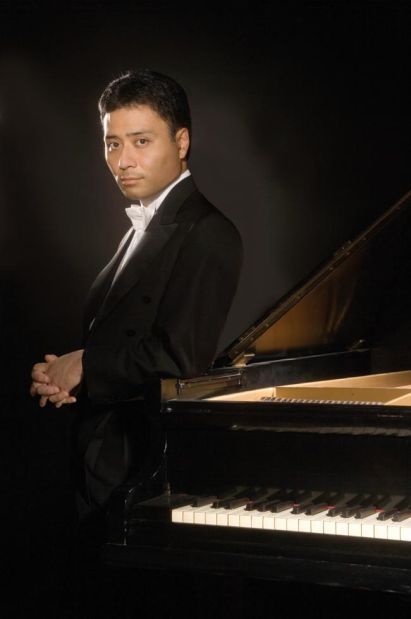Jon Nakamatsu will make his Tucson Symphony Orchestra debut this weekend performing the piece that launched his professional music career and put an end to his high school teaching career.
On Friday and Sunday, Nakamatsu will solo on the Rachmaninoff Piano Concerto No. 3, the same piece he played to win the Gold Medal in the 1997 Van Cliburn International Piano Competition. He was the first American to win the prize since 1981 and one of only three Americans to win in the contest’s 52-year history. (It’s held every four years; the last year was 2013.)
The Van Cliburn was Nakamatsu’s do-or-die competition. He was 28 years old and six years into his backup career teaching high school German in his native California.
“I basically had planned to leave music by the time I was 30, 32,” said the 46-year-old Japanese-American pianist, who studied from age 6 to his late 20s under Marina Derryberry .
Until then, he was determined to give it his all, diving into competitions with little success and trying to perform before audiences at every chance. But the looming deadline “was like planning my own funeral.”
“I decided I would give one last concert and invite every person that ever was supportive and gracious to me and close the lid and walk away before it made me bitter or angry or frustrated,” he said of how he planned to walk away from his musical dreams. “I never wanted something that was so wonderful to end like that.”
Then along came the Van Cliburn, one final shot at the dream. With Derryberry along for the ride and encouragement, he advanced to the finals, a chance to play the Rach 3.
The irony was that until that day in June 1997, Nakamatsu had only performed the Rach 3 once with an orchestra — back at Stanford University when he was a student playing with the university orchestra.
“I had never really played the whole piece with a professional orchestra before,” he said. “When I got into the finals I couldn’t believe I was going to play it with the Fort Worth (Texas) Symphony and on a stage that had launched these careers that I had heard about since I was young. Knowing how many competitions I had been in before … I knew what the reality of it was and the fact that I was going to play the piece that was my dream piece all my life up until that point, with a real orchestra in front of this audience. Even if this was the last place, it was all going to end right there, that made my whole musical life worth while.”
Of course, we know how that part of the story ended: He won the Gold Medal and returned to California and promptly quit his teaching job. And the Rach 3 has become one of his signature pieces.
“It’s such an incredible piece. For audiences, certainly, it’s a piece that even if you didn’t know anything about music, it’s one that will be arresting from the first note to the last,” he said during a phone call last week from his California home.
“It has basically every pianistic trick in the book, including just your basic, beautiful lyrical moments. Wonderful tunes. Incredibly exciting writing and probably the most notes of any piano concerto written. There is so much for us to do that we are lucky that we survive it most of the time.”
This weekend’s concerts are Nakamatsu’s first in Tucson since he played a recital at the University of Arizona’s Crowder Hall in 2005.





